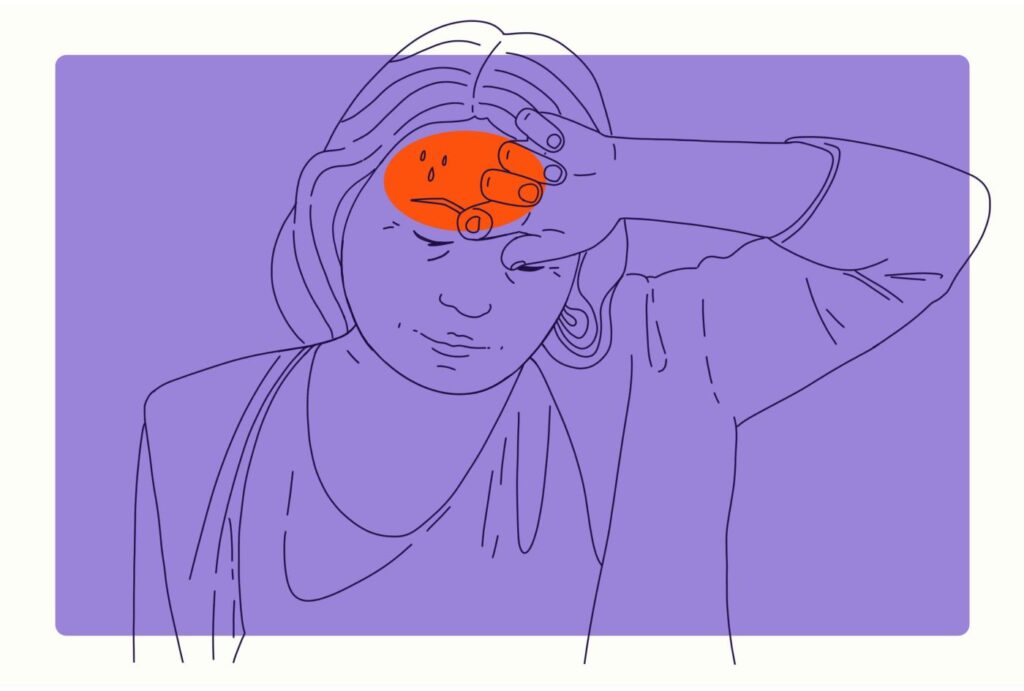Women’s Health
How Long Can Menopause Last?
Menopause, a natural biological transition marking the end of a woman’s reproductive years, is a significant milestone in every woman’s life.
However, the journey through menopause is often characterized by a range of physical, emotional, and hormonal changes that can vary widely from one individual to another. Among the many questions surrounding menopause, one of the most common inquiries is about its duration. Understanding how long menopause can last is crucial for women navigating this transformative phase of life. In this article, we delve into the intricacies of menopause duration, exploring the factors that influence its timeline and offering valuable insights to empower women on their menopausal journey.
Menopause duration varies widely and is determined by genetics, lifestyle, food, stress, and health. While some women may only suffer menopausal symptoms for a few months, others may have them for years. It is critical for women to recognize that menopause is a natural part of aging and that there are numerous effective therapies available to alleviate symptoms and improve quality of life.

Understanding Menopause
Menopause is a normal biological process that ends a woman’s reproductive potential. It occurs when a woman’s ovaries stop generating eggs and her monthly cycle ends. Menopause is a natural component of aging that often happens between the ages of 45 and 55, however, it can occur earlier or later.
Stages of Menopause
There are three stages of menopause: perimenopause, menopause, and postmenopause. Perimenopause is the phase before menopause in which a woman’s ovaries gradually generate less estrogen. Menopause is described as a woman not having a menstrual cycle for 12 consecutive months. Postmenopause is the period following menopause.
Symptoms of Menopause
It can induce a range of symptoms, including hot flashes, night sweats, vaginal dryness, mood fluctuations, and sleep difficulties. These symptoms can be moderate or severe and might persist for years. Hormonal changes are the leading cause of menopausal symptoms.
Factors Influencing Menopause Duration
The duration of menopause varies from woman to woman. Age, health, and heredity can all influence how long menopause lasts. Women who go through early menopause before the age of 40 may have more severe symptoms and a longer menopausal period. Premature menopause, which occurs before the age of 40, can be caused by primary ovarian insufficiency, a disorder in which the ovaries cease to function normally.
Overall, menopause is a normal phase of aging that signals the end of a woman’s reproductive capacity. Menopausal symptoms can be uncomfortable, but they are usually transient and can be treated with lifestyle modifications and medications.

Health Impacts and Management
Physical and Emotional Changes
Menopause can lead to a variety of physical and emotional changes in women. Common symptoms of menopause include hot flashes, vaginal dryness, mood changes, and weight gain. Although these symptoms can have an influence on a woman’s quality of life, they can be managed.
Physical symptoms can be managed by exercise. Exercise can help lessen the severity and frequency of hot flashes while also improving bone health, which can be affected by menopausal osteoporosis. A well-balanced diet rich in calcium and vitamin D can also assist in keeping bones healthy.
Mood swings can be addressed with treatment and lifestyle adjustments. Women can benefit from speaking with a therapist or joining a support group to help them manage the emotional changes associated with menopause. Meditation, yoga, and deep breathing are all stress-reduction strategies that can help you control your mood.
Long-Term Health Considerations
Menopause may also have long-term health consequences. Women going through menopause have a higher chance of developing heart disease and osteoporosis. To lower their risk of heart disease, women should follow a healthy lifestyle that includes frequent exercise and a well-balanced diet.
To lower their risk of osteoporosis, women should eat calcium and vitamin D-rich foods and, if necessary, take supplements. Women should also engage in weight-bearing workouts like walking, jogging, and weightlifting to preserve bone density.
To summarize, it can produce physical and emotional changes that affect a woman’s quality of life. However, these symptoms can be managed with exercise, nutrition, therapy, and stress-reduction measures. Women should also be aware of the long-term health implications of menopause and take precautions to lower their risk of heart disease and osteoporosis.

Treatment and Lifestyle Adjustments
Menopause is a normal process that every woman experiences and it can linger for several years. Menopause is a natural part of life, but the symptoms can be difficult to manage. Fortunately, there are numerous medications and lifestyle changes that can help women manage menopausal symptoms and enhance their overall quality of life.
Hormone Therapy and Alternatives
Hormonal therapy (HT) is a popular treatment for menopause symptoms. HT entails taking estrogen and, in some cases, progesterone to replace hormones that the body no longer makes. HT effectively reduces hot flashes, vaginal dryness, and other menopausal symptoms. However, it does carry some hazards, including an increased risk of breast cancer, blood clots, and stroke.
There are various other treatments that can be used instead of or in conjunction with HT. Over-the-counter drugs like ibuprofen or acetaminophen can help some women relieve menopausal symptoms. Some people may benefit from antidepressants or other prescription drugs. It is critical to consult a healthcare expert to identify the best course of action.
Lifestyle and Home Remedies
In addition to medical therapies, women can manage menopausal symptoms with a variety of lifestyle adjustments and home remedies. One of the most effective strategies to alleviate symptoms is to exercise. Regular exercise can help to minimize hot flashes, improve sleep, and elevate mood.
Other lifestyle modifications that may be beneficial include a good diet, adequate sleep, and stress reduction. Lubricants may also be beneficial for women who are experiencing vaginal dryness and pain.
It is vital to understand that not all treatments and therapies are effective for every woman. It may take some trial and error to determine the most effective mix of therapy for menopause symptoms. Women should discuss their symptoms and concerns with their healthcare physician to identify the best course of action.

When to Consult a Doctor
Menopause is a normal process that every woman experiences and it can linger for several years. While most women feel some discomfort during this time, it’s crucial to know when to see a doctor. Here are some tips to help you choose whether you should seek medical attention:
Identifying Abnormal Symptoms
If you encounter any of the following symptoms, you should see a doctor:
- Heavy bleeding or bleeding between periods.
- Irregular periods lasting longer than usual.
- Severe depression or anxiety that disrupts daily living.
- Abnormal vaginal discharge or odor
- Pain during intercourse.
- Unexplained weight loss or gain
These symptoms could point to a more serious underlying problem, such as uterine cancer or an infection. If you detect any of these symptoms, schedule an appointment with your doctor right away.
In addition to these symptoms, you should monitor any changes in your menopausal symptoms. If you notice a sudden rise in hot flashes, night sweats, or other symptoms, it could indicate that your hormone levels are shifting. Your doctor can advise you on the best course of action to treat these symptoms.
Overall, it’s critical to maintain communication with your doctor throughout the menopausal phase. Regular check-ups can help you keep aware of any changes in your health and ensure that you receive the care you require.
Conclusion
In conclusion, while the duration of menopause varies from woman to woman, it normally lasts many years, with an average of four to five years. However, it is critical to understand that menopause is a highly individualized experience influenced by a variety of factors such as heredity, lifestyle, and general health. Understanding the probable duration of menopause and the elements that can influence it allows women to better prepare for the physical and mental changes that come with it. With education and assistance from healthcare experts, women can confidently manage menopause, viewing it as a natural and empowering stage of life. Remember that menopause may mark the end of one chapter, but it also marks the start of a fresh and vigorous one, full of opportunities for development, wisdom, and self-discovery.
Trusted Health, Wellness, and Medical advice for your well-being



